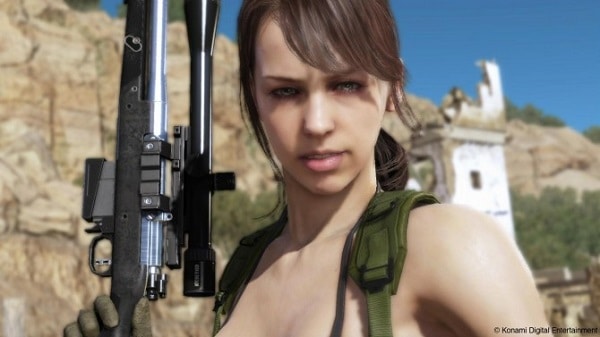
Nintendo 64 (1996)
The Nintendo 64 is probably Nintendo’s most polarizing console released to date. Ask someone about it, and they’ll most likely rank it with the best consoles ever released, or way down at the bottom of the list with the likes of the Virtual Boy and the N-Gage. Some simply couldn’t get past its weirdly shaped controller, and many criticized Nintendo’s choice of sticking with cartridges when CD-ROM was already the norm, but no one can deny the console’s impact on the industry, in terms of both hardware and software.
Nintendo consoles have always been at the forefront of innovation, and the N64 was no exception. With a growing trend towards multiplayer games, the N64 was the first console to launch with four controller ports. The controllers which plugged into said ports featured the first digital thumb-stick, allowing the player 360 degree control over their in-game avatar, and best of all, the stick could be controlled using just a thumb, unlike those huge analog joysticks from past consoles. Those three-pronged controllers were also the first on a home console to have a rumble feature, thanks to the Rumble Pak which debuted alongside Star Fox 64, and it also pioneered the use of trigger style buttons with its Z-Trigger. Yes, the Nintendo 64 was behind on the times when it came to the use of CD-ROM technology, but it changed the industry none the less. Four controller ports, thumb-sticks, trigger buttons and the rumble feature all became industry standard moving forward.
Cool hardware innovations are always welcome, but consoles are remembered for their greatest games, and the N64 had no shortage of industry changing titles. GoldenEye 007 took the beloved genre of First-Person Shooters, which had previously only found true success on the PC platform, and made it viable on consoles. With its atmospheric single player campaign, and its wide array of competitive multiplayer options, GoldenEye paved the way for the Halos and Call of Dutys to come. Super Mario 64 was the first game to feature a camera that could be moved freely and independently of the character, giving the player freedom and control in a 3D space like never before, and changing 3D game development forever. The Legend of Zelda: Ocarina of Time, to this day, is seen by many as the greatest video game of all time. And the list goes on: Conker’s Bad Fur Day, Banjo-Kazooie, Super Smash Bros, Star Fox 64, Diddy Kong Racing, Perfect Dark, The Legend of Zelda: Majora’s Mask, and on and on. Almost every console released to date has some great games and a handful of true masterpieces to their credit, but the Nintendo 64 has dozens of genre defining and awe-inspiring classics.
While the N64’s collection of games is its greatest strength, the lack of depth in its library is a glaring weak point to many. The mass majority of great N64 titles, including all those mentioned above, were developed by Nintendo or Rareware. There were great games from other developers (WWF No Mercy, Star Wars: Shadows of the Empire, and Resident Evil 2 to name some), but they were few are far between. Due to the limitations of the cartridge format, and the difficulty of developing games for the N64 compared to the PS1, many 3rd party developers opted to simply ignore the console, which resulted in the N64’s game library topping out at about 500 games, where as the PlayStation has over 3000 titles in its arsenal.
It’s very easy to draw parallels between the N64 and the current situation of the WiiU: Both systems launched with hardware that was not up to par when compared to their contemporaries, which resulted in them having a sever lack of 3rd party support and thus underwhelming game libraries. The difference is: while the WiiU has a handful of amazing first party games, the N64 has dozens. For those who look at sheer numbers, yes, the PlayStation undoubtedly has the larger library, but at the end of the day, it comes down to quality versus quantity, and I’d always take the former over the latter. It may not have been the technological marvel of its time, and it certainly didn’t get the 3rd party love that Nintendo would have hoped for, but the N64’s elite game library gives it justification to stand tall amongst the greatest consoles ever made. (Matt De Azevedo)
#11 #10 #9 #8 #7 #6 #5 #4 #3 #2 #1






